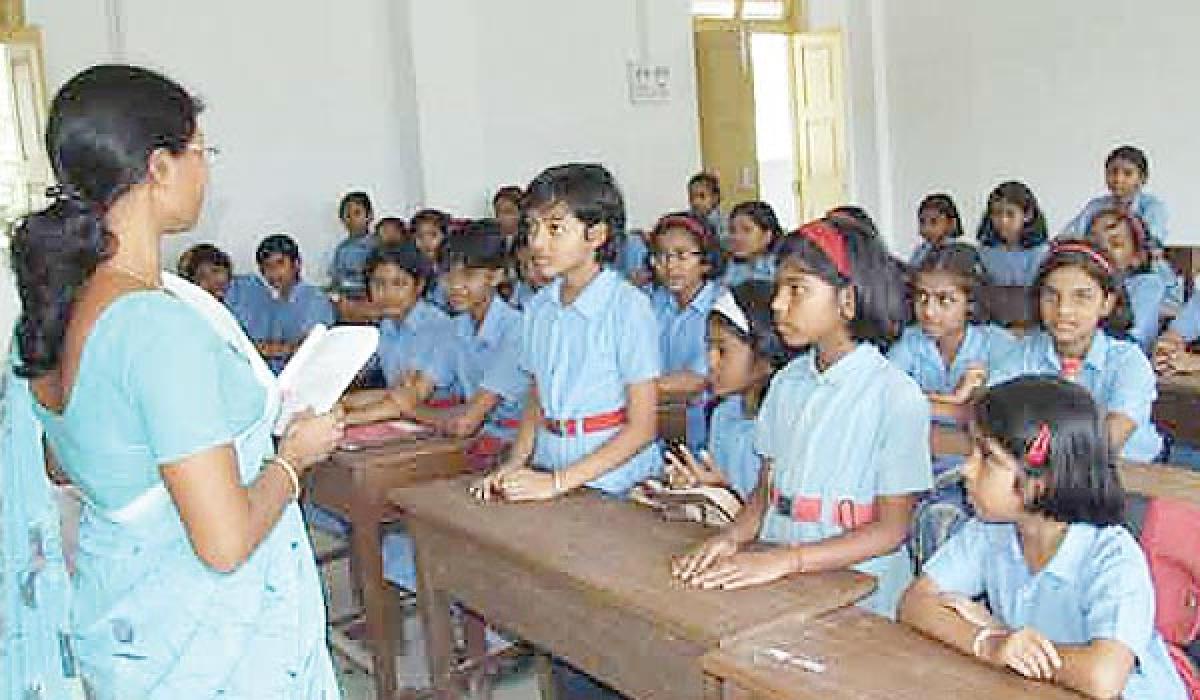Live
- RG Kar issue: Day-long protests in Kolkata today on bail to Ghosh, Mondal
- Plans afoot to bring EPFO service at par with banking: LabourSecy
- vivo unveils X200 series of mobiles
- Sensex, Nifty stage a surprise recovery
- Govt commits to tackling maternal healthcare, deaths
- Capex to touch Rs 11.11-trn target this fiscal
- HCLTech launches TechBee
- Industrial growth recovery expected in H2
- No arrests made yet, says Police Commissioner
- Bhupalapally: 22 selected for kabaddi tournament
Just In

However, primary school students (till Class V) cannot be detained and would be promoted up to Class V to meet the requirements of Right to Education Act.
Hyderabad: The New Education Policy (NEP), 2016 which is likely to come into force this year may put an end to the practice of ‘No detention policy’ in 42,632 schools across Telangana from this academic year.
However, primary school students (till Class V) cannot be detained and would be promoted up to Class V to meet the requirements of Right to Education Act.
Telangana State has encouraged dropout children to take up education by implementing the ‘No detention policy’. This has resulted in the number of students who repeated the same class to come down to 175 in 2015-16 against 9,245 in 2014-15.
Prominent academician Prof K Hara Gopal observed that the drop-out factor was mainly because of poor infrastructure in the education system. “There will be no issues if government provides better facilities and offers qualitative teachers. A student fails when there are loopholes in the education system. The New Education Policy must address all these issues before it is finalised,” he said.
Profound educationalist Prof Rama Melkote said that the New Education Policy would increase privatisation and corporatisation of education in Telangana. “The parents of school-going students in the state are already facing severe problems because of the higher fee being charged by private and corporate schools, and these changes can create more problems in the near future,” she said while adding that this change will also affect the Centre-State relations.
Meanwhile, several intellectuals in the city said that the new education policy could privatise higher education and encourage foreign universities to open educational shops across the country by collaborating with any of the local universities.
The New Education Policy, 2016 also has something interesting in it. The new policy proposes creating a new Civil Services cadre ‘Indian Education Service’ (IES), exclusive for the education sector.
It has also recommended Sanskrit language as a medium of instruction in schools and at the university level. The policy also focuses on raising investment in the education sector to six per cent of the country’s Gross Domestic Product (GDP).
The Centre has uploaded a 34-page document ‘some inputs for draft new education policy’ on the public domain on MyGovIndia website to seek comments and suggestions from the general public. The inputs from the public would be received till July 31.
By:G Bharat Krishna

© 2024 Hyderabad Media House Limited/The Hans India. All rights reserved. Powered by hocalwire.com







